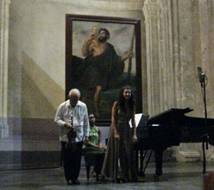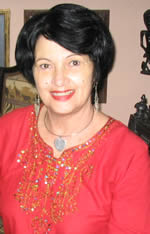By the end of the 1940s everyone working as a teacher in Cuba was an accredited professional in education. In the 1950s there were many illustrious professors in our country, teachers who were recognized internationally for the work they had published, which was used as textbooks both at home and abroad. They included Valmaña, Baldor and Añorga, to name but a few authors of textbooks used even today by teachers and students throughout Latin America.
After 1959, when private schools were seized by the government, an absurd law was promulgated which “invited” teachers actively working in primary and higher education to retire after only twenty-five years of service, which was the case for many, regardless of a teacher’s age. This and other issues forced many teachers, who also saw themselves disparaged for having been trained under capitalism, to go into exile. Most would retire and very few were able to continue teaching given the adversities they faced. Subsequently, the quality of education began to decline as young people from the countryside had to be trained as teachers hastily, in order to fill the void the government itself had created. These so-called “Makarenkos” were trained according to the methods of a Soviet pedagogue of the same name.
In the 1970s there were still good teachers in many schools who helped mentor the newcomers, but low salaries, the lack of incentives, and the growing evident deterioration of teaching facilities, lead to the gradual increase of high turnover across the teaching sector, especially in elementary and high schools. And yet, considering the time, the universities relied on a luminary lineup of professors on faculty.
Another factor that incited the decline in the quality of education was that teachers found themselves pressured — so as to not affect their performance evaluations, which were based on rank and not quality — to commit fraud. This lead to many teachers revealing exam questions in advance to their students and, on many occasions, even whispering the answers in their ears, so as to secure positive evaluations.
Facing the rapid decline of education and the lack of teachers in specific subjects, many parents decided to turn to retired teachers to review and, in some cases, even teach the subjects to their children. Other parents, in a better economic situation, achieved the same effect with their kids by giving costly gifts to the current teachers on staff. The quality of education kept falling more and more; and students and families lost respect for teachers. Then, as the coup de grace, came the so-called “emerging teachers”, trained by quick, low-quality courses, and the replacement of teachers by televisions in the classrooms. These marked the final blow to the quality of education.
Alongside this decline, the number of people seeking to earn a little more income by privately tutoring and charging for it, to be sure, swelled progressively. The “reviewers”, they were called. This was, until the recent appearance of the new licenses, a clandestine service. Now reviewers exist legally, but the government is already looking for ways to disparage this service, seeking to vilify active teachers who also work as reviewers and, as such, are not authorized to apply for a license. The media mount the charges against them, accusing them of a lack of ethics and civility, without having the courage to face and divulge the fundamentally economic causes that have provoked this situation — the miserable salaries teachers are paid, which are not enough to satisfy their minimal needs as citizens — and overlooking that, if once again they feel cornered, teachers begin to flee the country, creating a new vacuum in education, each time harder to fill.
A legal solution is necessary to resolve this man-made chaos, without harming teachers or students and, above all, the nation’s future. Reviewers exist precisely due to the increasingly low quality of education. This is the responsibility of the entire citizenry in general but, first and foremost, of the Ministry of Education and its highest echelons.
Translated by: Yoyi el Monaguillo
15 October 2013




 On this occasion, the strings and bow plucked by Tieles brought us the whims of Paganini, those nocturnes by Chopin, and crowned the majesty of the repertoire with Schumann’s Sonata in A Minor, Opus 105.
On this occasion, the strings and bow plucked by Tieles brought us the whims of Paganini, those nocturnes by Chopin, and crowned the majesty of the repertoire with Schumann’s Sonata in A Minor, Opus 105.

